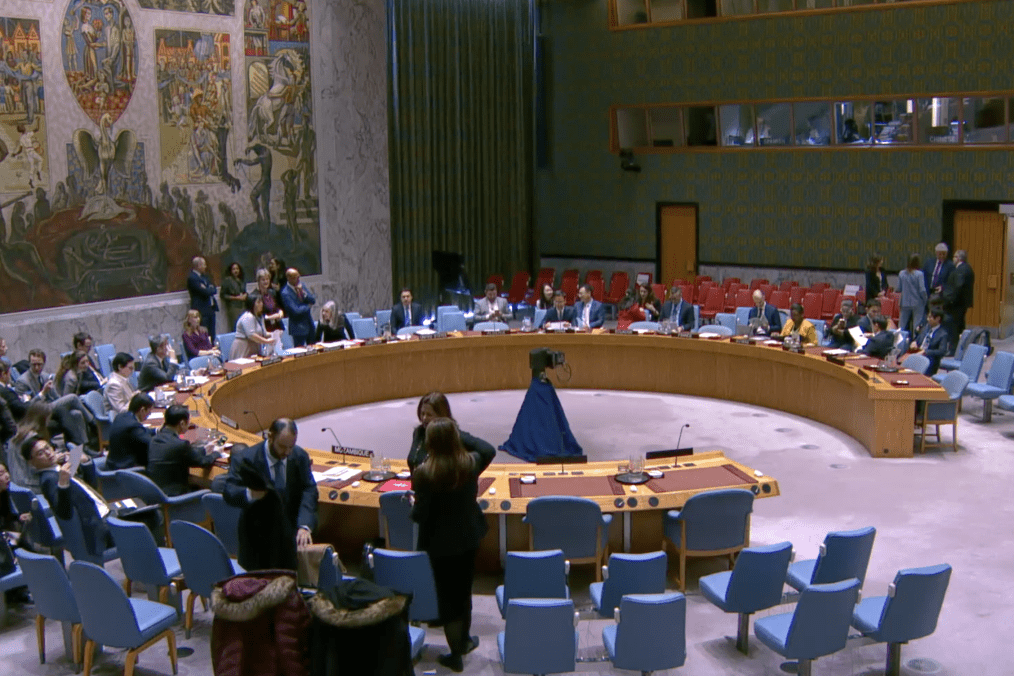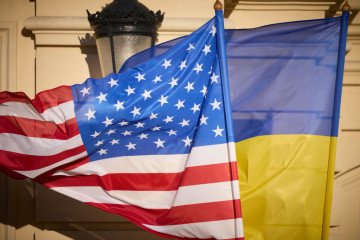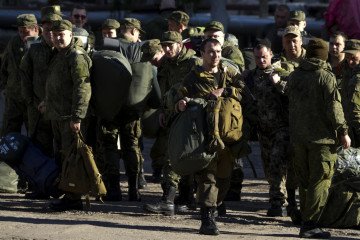- Category
- Latest news
Highlights From UNSC Emergency Session on Russia’s Attacks on Ukraine’s Infrastructure

The United Nations Security Council (UNSC) is holding an emergency session today, November 27, in response to Russia’s recent attacks targeting Ukraine’s critical infrastructure.
Miroslav Jenčam, Assistant Secretary-General for Europe, Central Asia and the Americas
On November 21, the Ukrainian city of Dnipro was hit by a ballistic intermediate-range Russian missile. It hit an industrial area southwest of the industrial city. According to the Ukrainian authorities, the missile was equipped with 6 warheads, each with 6 submunitions, and took only 15 minutes to arrive from the launch site in the Astrakhan region of the Russian Federation, some 1000 km away from Dnipro city.
Systematic Russian airstrikes have continued to wreak havoc across Ukraine. Just yesterday, Russia launched 188 drones against 17 regions of Ukraine. This was reportedly the record number of drones deployed in a single attack.
The cost of this war is already too high for the people of Ukraine and for the world, and it is growing by the day.
US Ambassador Robert Wood
As Russia expands and escalates the conflict, the Kremlin blames others for perpetuating the war and spreads false narratives. The Kremlin equates its drone and missile strikes with those of Ukraine, ignoring a fundamental difference, Ukraine has every right to defend itself against invasion under Article 51 of the UN charter.
Japan’s UN Ambassador Yamazaki Kazuyuki
We would like to repeat that Ukraine is not waging a war, Ukraine was forced to fight and is defending itself. It is Russia that launched and provoked a war of aggression.
Madam President, attempts to change the status quo by force should never succeed, allowing such actions to have worldwide repercussions affecting everyone in the future.
The international community must act to stop the aggressor, not to seek a forced peace or reward the aggressor. It is not a matter of choosing sides between Ukraine and Russia. It is a question of either upholding or disregarding the UN charter.
Japan once again strongly demands that Russia withdraw from Ukraine immediately and unconditionally. Japan continues to stand with Ukraine.
Russia’s Deputy Ambassador to the UN Dmitry Polyanskiy
In response to the use of American and UK long-range weapons on the 21st of November, the Russian armed forces conducted a combined strike on a military-industrial complex in Ukraine. For the first time, a new IRBM Russian missile system was with non-nuclear hypersonic equipment. The effectiveness of such weaponry that has no analogy is something that Western specialists assisting Ukraine can tell you about.
Every wave of escalation from the West is going to be decisively responded to. I will be frank, we believe that it is our right to use our weapons against military facilities of those countries who allow the use of weapons against our facilities. So we are talking about the hypersonic weaponry today that is the American anti-missile defense systems in Europe they can not capture these. We have warned you about this, but you have made your choice.
France’s UN Ambassador Nicolas de Rivière
A few days ago, Russia said it had struck the Ukrainian region of Dnipro by using for the first time an intermediate-range ballistic missile, the so-called “Oreshnik.” This caused damage in civilian areas, and Russia accompanied it with threats against states supporting Ukraine.
South Korea’s UN Ambassador Hwang Joon-kook
Last week, I highlighted that Russia is undermining the international order and the global non-proliferation regime. However, recent developments of the last week are even more alarming.
On November 19, Russia announced the revision of its nuclear doctrine, this new nuclear doctrine allows for a nuclear response to aggression from a non-nuclear weapons state if supported by a nuclear weapon state, lowering the threshold for nuclear engagement.
In addition, Russia launched an intermediate-range ballistic missile, IRBM. This attack marks the first time that such systems have been used in combat. It is worrisome that Russia is dangerously blurring the lines between conventional and nuclear warfare by taking these escalatory actions.
Madam President, the war in Ukraine is becoming further complicated with the DPRK’s full involvement. Initially, North Korea supported Russia’s invasion of Ukraine and was one of the only 5 member states that voted against the General Assembly Resolution on March 2, 2022, entitled “Aggression Against Ukraine,” which deplored the aggression and demanded the full withdrawal of the Russian forces.
Starting from August of last year, the DPRK has shipped around 20,000 containers to Russia. To date, it is estimated that the DPRK has provided approximately 9.4 million artillery shells.
Ukraine’s UN Ambassador Sergiy Kyslytsya
The ongoing deployment of the DPRK troops to support Russia remains one of the clearest indicators of Moscow’s unwillingness to de-escalate. Alongside the weapons supply that Russia has been receiving from Pyongyang for over a year.
As we informed earlier, the troops [DPRK] are fighting under assumed identities of Russia’s Far East nationalities, using forged documents.
The DPRK now is entering the war in a fully-fledged manner. According to available information, its current military, contingent of 11,000 troops, could quickly be increased to 100,000.
According to publicly available information, the DPRK has sent more than 20,000 containers of artillery, missiles, and other conventional arms to Russia since August 2023.
Additionally, there have been recent reports that Russia received 170mm self-propelled howitzers and 240mm multiple rocket launch systems from the DPRK. Let me recall that the transfer of ballistic missiles, along with any other arms […] flagrantly violates multiple UNSC resolutions.
At the same time, the Security Council should continue addressing the issue of non-compliance of the DPRK and the Russian Federation with relevant Security Council Resolutions.
The response to the Kremlin’s current nuclear blackmail must include tougher sanctions and increased military assistance to the party defending itself, its people, and the principles of the UN charter. In this context, we do not accept concerns about strengthening Ukraine’s capacity to strike military targets on Russian territory as alleged escalation.
It was from Russian territory that the full-scale invasion began in February 2022. It was on Russian territory that new military units were being formed to occupy and destroy Ukrainian cities and kill Ukrainian people.
-f88628fa403b11af0b72ec7b062ce954.jpeg)

-72b63a4e0c8c475ad81fe3eed3f63729.jpeg)



-111f0e5095e02c02446ffed57bfb0ab1.jpeg)